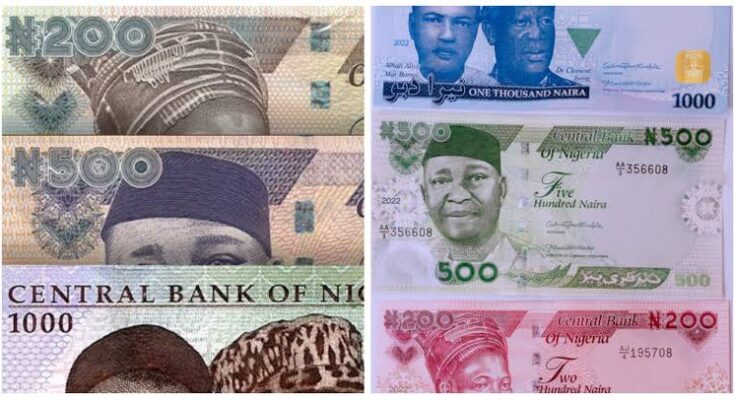

Hakeem Gbadamosi, Akure
As part of efforts to ensure financial inclusion and a cashless policy, the Central Bank of Nigeria took its sensitisation crusade to the market in Akure community and its environs saying the policy is aimed at reducing the physical cash transactions and promoting the adoption of digital payments.

Speaking at the palace of the traditional ruler of Akure Kingdom, the Deji of Akure, the Acting Branch Manager of CBN in Akure, Mr Samuel Giwa, said the introduction of the policy will help to bring corruption to its barest minimum, reduce money laundering, and improve the efficiency of the financial system.
Giwa who encouraged Nigerians especially market women to embrace the new digital currency called eNaira said it was designed to make transactions easier, more efficient, and more secure.
“The eNaira is not just a currency, but an important step towards building a more robust and secure financial ecosystem. The eNaira has indeed become a critical part of the Nigerian financial ecosystem, and an alternate channel.
“It will not only support the Ondo State economy, but Nigeria as a whole; a symbol of progress and innovation and will pave the way for a more secure and efficient
financial system,”
Also speaking, Victory Otoba, said the sensitisation became necessary to enable the apex bank to educate larger crowds on the new cashless policy.
He stated that digital payments would reduce the risk of theft and loss and as well make it easier to track and monitor transactions.
He said with the platform, individuals and businesses could access financial services even if they did not have a traditional bank account.
However, the Deji of Akure, Oba Aladetoyinbo Aladelusi, while responding, lauded the CBN policy saying the policy if well implemented will reduce crime, but decried the timing and its impact on rural economy and informal sector.
The monarch maintained that the policy was ill-timed and stressed the need to improve and develop the infrastructural facilities across the country, saying this factor has been an impediment to the take off of the cashless policy.
The traditional ruler said if the policy is implemented the way it was planned, the policy will boost the urban economy and plunge the rural economy, which is cash based but without alternative banking facilities, into the abyss.
He called for a gradual implementation that would first ensure creation of financial institutions in sufficient numbers in all parts of the country.
He said, “The decision by CBN to kickstart the long anticipated cashless policy is a welcome development, it is well justified, well intentioned. Cash based economies are costly, inefficient and prone to attacks by evil people.
“So, less cash will be available to all these criminals as the CBN is trying to achieve, and this is good for law abiding citizens.
“The CBN officials may have the best of intentions while putting this policy in place but they evidently failed to consider the unintended consequences of implementing it in the way they have planned; and this may be extremely grave”








